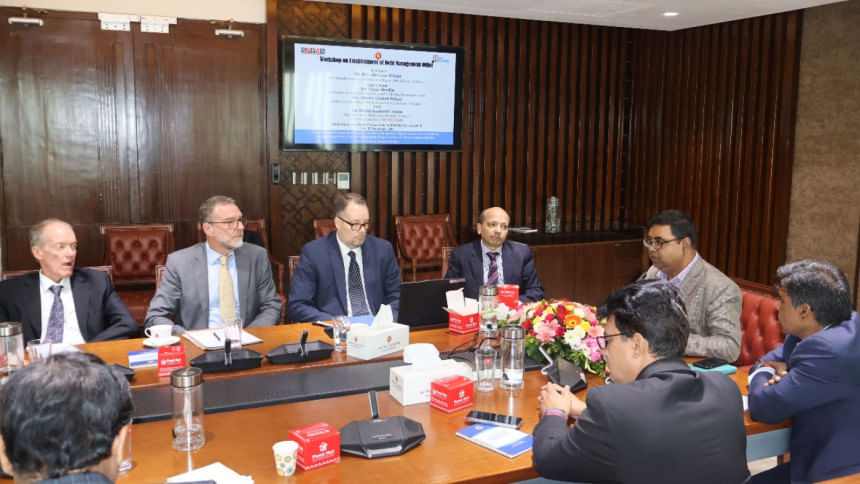A joint mission of the International Monetary Fund (IMF) and World Bank has recommended the creation of a unified Debt Management Office (DMO) to strengthen the country's public debt framework and reduce fiscal and operational risks.
According to the mission, Bangladesh's debt management functions remain fragmented across multiple agencies, creating coordination gaps, inconsistent data, and difficulties in formulating a comprehensive strategy.
The proposal was presented at a workshop titled "Establishing a Debt Management Office" yesterday at the Secretariat in Dhaka, according to a press release.
The event was organised under the Scheme on Strengthening the Capacity of the Treasury and Debt Management Wing of the Finance Division, part of the Strengthening Public Financial Management to Enable Service Delivery (SPFMS) programme.
The mission suggested consolidating all government and government‑guaranteed debt functions under the Finance Division, beginning with restructuring the Treasury and Debt Management Wing. In its initial phase, the DMO would oversee domestic debt issuance, prepare annual borrowing plans, coordinate auction calendars, assess portfolio risks, and build a unified debt database.
A clear legal framework defining borrowing authority, accountability, and transparency standards was also recommended.
Specialised staffing was identified as critical, with expertise in capital markets, pricing, settlement operations, and risk management to be sourced from Bangladesh Bank, commercial banks, and the capital market.
To retain such professionals, the government would need to offer competitive pay and career development pathways.
Over the medium term, the DMO could evolve into an autonomous entity with expanded functions, including contingent liability oversight and investor relations.
International experience since the 1980s shows that centralised DMOs help reduce borrowing costs, strengthen fiscal transparency, and separate debt management from monetary policy.
The mission said that establishing a DMO will require political commitment, phased restructuring, modern IT systems, and sustained inter‑agency coordination. Once operational, it is expected to enhance market confidence, lower financing costs, and reinforce long‑term fiscal stability.
Senior officials from the Finance Division and IMF-World Bank experts attended the workshop.

